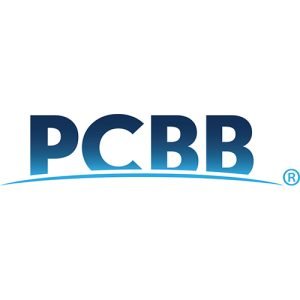Measuring capital value can sometimes be challenged by the type of scale that is used — take the tangible capital rule that determines if a bank qualifies for Federal Home Loan Bank (FHLB) advances.
Created in 1932, the FHLB system promotes its role as a source of liquidity to banks, particularly during times of economic stress. In order for a bank to qualify for those FHLB funds and liquidity resources that might otherwise be unavailable to community banks, that institution must meet FHLB’s criteria for tangible capital levels. This includes
stock assets that may not yield the minimum required amounts under current market rates.
That rule is under stress right now as a result of the recent economic conditions, rising interest rates, and low yields that are partly responsible for causing those negative tangible assets. The situation has started to push some community banks below tangible capital requirements, which would then exclude them from FHLB advances. That could have serious consequences for those institutions.
Financial Institutions Ask for Rule Modifications
While the problem is thought to have an immediate impact on only about 100 community banks, it is serious enough to draw the attention of the entire financial community. In a letter to federal regulators, 77 financial organizations asked for the rule to be modified, substituting Tier 1 Capital (also referred to as regulatory capital) for tangible assets. That should be enough to ease the situation. Among those who signed are the American Bankers Association and the Independent Community Bankers of America.
The primary culprit behind the problem is the rapid rise in interest rates, which has hit some community banks hard, undercutting their asset values enough to turn their tangible capital levels negative. When that happens, community banks are cut off from low-cost FHLB advances, which can lead to an immediate liquidity crisis unless they get a waiver from regulators. The continuing rise in interest rates could push more banks over the line. Some in the financial world are warning that the issue could lead to a fast-spreading liquidity crisis.
Blame It on the Pandemic and the Rise in Deposits
As bankers explained in their letter, banks took in a flood of deposits during the pandemic, and much of that was invested in short-term securities such as treasuries. As interest rates rose, however, the value of those treasuries and other securities dropped. Bigger banks were more diversified, but many community banks have been caught in the squeeze, leading some to have to place a negative value on their tangible assets. The banks may be perfectly sound, but the tangible asset calculation makes them look like they are in trouble.
Viewed one way, the tangible capital rule is doing what it is supposed to do: ensure that banks with dodgy financials don’t get access to FHLB financing. But as the current situation makes clear, tangible assets may not be the best way to evaluate banks in the current economic climate.
About a decade ago, regulators such as the Fed and the FDIC adopted new rules that used Tier 1 Capital as the primary measure of soundness, but the FHLB continued to use tangible capital. Both methods offer a snapshot of a bank’s condition. But Tier 1 capital casts a wider net and, according to the financial organizations, provides a better reflection of actual conditions. In addition, using Tier 1 would likely alleviate the liquidity crisis for affected banks.
How the Federal Housing Finance Agency (FHFA), the FHLB’s regulatory agency, will respond remains to be seen. The FHFA could temporarily waive the rule, change it, or leave things the way they are. Meanwhile, a growing cross-section of community banks wait anxiously to see if they will continue to have access to FHLB financing.
To continue this discussion or for more information, please contact Dennis Falk or Jo Ellen McKinley.
Dedicated to serving the needs of community banks, PCBB’s comprehensive and robust set of solutions includes cash management, international services, lending solutions, and risk management advisory services.

Dennis Falk
SVP & Regional Manager for PCBB
dfalk@pcbb.com

Jo Ellen McKinley
SVP & National Business Development Manager for PCBB
jmckinley@pcbb.com







